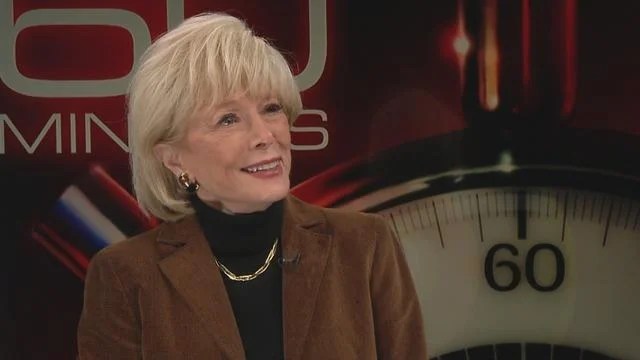In the realm of broadcast journalism, few programs have made as significant an impact as CBS's "60 Minutes." Known for its in-depth reporting and compelling storytelling, this program has captivated audiences for decades. But what goes on behind the scenes? Who are the talented reporters that bring these stories to life? In this article, we delve into the lives and careers of the esteemed 60 Minutes reporters, exploring their backgrounds, notable work, and the secrets to their success.
The 60 Minutes reporters are not just journalists; they are investigative warriors who shine a light on the truth in a world filled with misinformation. These reporters have a knack for asking the tough questions that need to be answered, often uncovering stories that would otherwise remain hidden. Their commitment to journalistic integrity and the pursuit of truth has earned them numerous accolades and the trust of millions of viewers. But who are these dedicated individuals, and what drives them in their quest for justice?
This article will take you behind the scenes of 60 Minutes, offering an inside look at the lives and careers of its reporters. From personal anecdotes to groundbreaking stories, we will explore what makes these journalists tick and how their work has shaped public perception on critical issues. Join us as we celebrate the legacy and future of the 60 Minutes reporters.
Who Are the Key Reporters of 60 Minutes?
The cast of talented reporters on 60 Minutes has changed over the years, but some names have become synonymous with the show. Here are a few key figures who have made significant contributions to the program:
- Lesley Stahl
- Scott Pelley
- Bill Whitaker
- Anderson Cooper
- Sharyn Alfonsi
What Are the Backgrounds of These Investigative Journalists?
Each of the 60 Minutes reporters brings a unique background and perspective to their work:
| Name | Background | Years at 60 Minutes | Notable Works |
|---|---|---|---|
| Lesley Stahl | Television journalist, author | Since 1991 | Interviews with political figures, investigative reports |
| Scott Pelley | News anchor, journalist | Since 2004 | Coverage of major national events, human interest stories |
| Bill Whitaker | Television reporter, correspondent | Since 2014 | Investigative pieces on social issues, interviews |
| Anderson Cooper | Television personality, journalist | Since 2006 | Coverage of natural disasters, political reporting |
| Sharyn Alfonsi | Television reporter, producer | Since 2015 | Investigative stories on healthcare, technology |
What Makes 60 Minutes Reporters Stand Out?
The 60 Minutes reporters are known for their distinctive approach to journalism. Key characteristics that set them apart include:
- **In-depth Research:** Extensive fact-checking and background research ensure that their reports are accurate and trustworthy. - **Emotional Storytelling:** They have a unique ability to connect with viewers on an emotional level, making complex issues relatable. - **Fearlessness:** The reporters often tackle sensitive subjects and confront powerful figures, showcasing their dedication to uncovering the truth. - **Integrity:** A strong commitment to ethical journalism helps maintain the show's credibility over the years.How Do 60 Minutes Reporters Prepare for Their Stories?
Preparation is crucial for any journalist, but especially for those working on a program like 60 Minutes. Reporters typically follow a rigorous process that includes:
1. **Topic Selection:** Identifying subjects that are relevant, impactful, and of high public interest. 2. **Research:** Conducting thorough research to understand the nuances of the story and gather supporting data. 3. **Interviews:** Engaging with sources, experts, and individuals involved in the story to gather diverse perspectives. 4. **Editing:** Collaborating with producers and editors to refine the final piece, ensuring clarity and viewer engagement.What Are Some Memorable Segments by 60 Minutes Reporters?
Over the years, 60 Minutes has aired countless memorable segments that have resonated with audiences. Some of the most notable include:
- **The Abu Ghraib Scandal:** Reporting on the human rights abuses at the Iraqi prison. - **The Opioid Crisis:** Investigating the pharmaceutical industry's role in the opioid epidemic. - **Artificial Intelligence:** Exploring the implications of AI technology on society and privacy. - **Climate Change:** Covering the challenges and solutions related to global warming and environmental degradation.How Have 60 Minutes Reporters Influenced Public Perception?
The impact of 60 Minutes reporters extends far beyond the screen. Their investigations have led to:
- **Informed Public Discourse:** By shedding light on critical issues, they encourage public dialogue and awareness. - **Policy Changes:** Their reports have prompted lawmakers and institutions to address pressing social issues. - **Increased Accountability:** The exposure of wrongdoing has led to greater accountability for individuals and organizations in power.What Is the Future of 60 Minutes Reporters?
As the media landscape continues to evolve, the future of 60 Minutes reporters remains bright. They are adapting to new technologies and platforms, ensuring that their investigative journalism remains relevant and impactful. Here are some trends to watch:
- **Digital Expansion:** Increasing presence on digital platforms and social media to reach younger audiences. - **Diverse Storytelling:** A greater focus on underrepresented voices and issues within various communities. - **Interactive Reporting:** Utilizing technology to create immersive storytelling experiences for viewers.Why Is It Essential to Support Investigative Journalism?
As consumers of news, it is crucial to support investigative journalism and the work of 60 Minutes reporters. Here are a few reasons why:
- **Promotes Transparency:** Investigative journalism holds institutions accountable and promotes transparency in governance. - **Empowers Citizens:** Knowledge is power; informed citizens can advocate for change and challenge injustices. - **Strengthens Democracy:** A well-informed public is essential for a functioning democracy, and investigative journalism plays a vital role in this process.In conclusion, the 60 Minutes reporters are not just journalists; they are storytellers, truth-seekers, and advocates for the public good. Their commitment to uncovering the truth and holding those in power accountable has made a lasting impact on society. As we look to the future, it is essential to recognize and support their work, ensuring that the legacy of 60 Minutes continues to thrive in a rapidly changing world.




